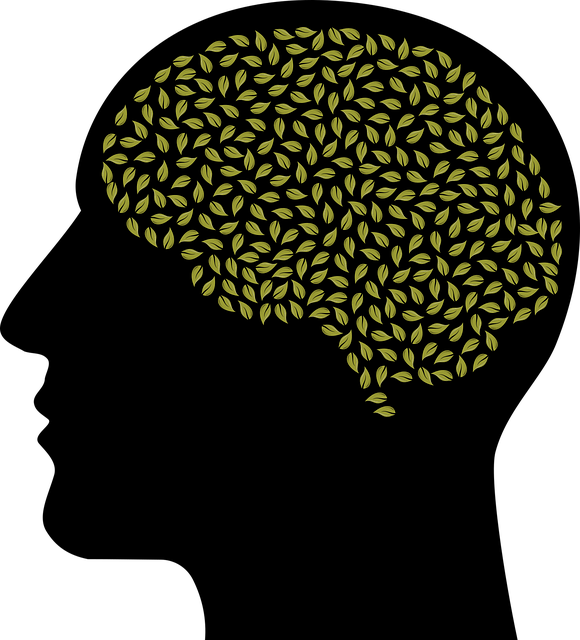Mental wellness journaling, backed by research and practices like Parker Depression Therapy, is a powerful tool for managing stress, anxiety, and depression through self-reflection and introspection. It promotes cultural sensitivity in mental healthcare by offering diverse perspectives, enhances personal growth, and provides a safe space to track progress, set goals, and collaborate with professionals. Incorporating daily journaling into routines can significantly contribute to improved mental health management and overall well-being.
Discover the transformative power of mental wellness journaling with guidance from Parker Depression Therapy. This article explores how expressing your thoughts and feelings through writing can significantly improve your overall well-being. We’ll delve into the science behind journaling, its numerous benefits, and provide practical steps to create a personalized mental wellness journal. Learn effective techniques to make journaling a powerful therapy tool for managing stress, enhancing self-awareness, and cultivating resilience.
- Understanding Mental Wellness and Journaling
- Benefits of Incorporating Journaling into Your Routine
- Creating Your Own Mental Wellness Journal
- Effective Techniques for Journaling as Therapy
Understanding Mental Wellness and Journaling

Mental wellness is a holistic concept encompassing emotional, psychological, and social well-being. Journaling, as a therapeutic practice, has gained popularity in fostering mental wellness, offering individuals a safe space to explore their thoughts and emotions. This ancient tradition has been enhanced by modern research, demonstrating its effectiveness in managing stress, anxiety relief, and even treating symptoms of depression, as supported by Parker Depression Therapy.
Journaling allows for self-reflection and introspection, which are crucial aspects of understanding and managing one’s mental health. By jotting down daily experiences, emotions, and insights, individuals can develop a deeper sense of self-awareness, a key component in navigating life’s challenges. This practice also encourages cultural sensitivity in mental healthcare, as it enables people from diverse backgrounds to express themselves authentically, often leading to more tailored and compassionate cultivation practices that address unique needs and perspectives.
Benefits of Incorporating Journaling into Your Routine

Journaling has emerged as a powerful tool for enhancing mental wellness, offering individuals a safe and intimate space to explore their thoughts and emotions. By incorporating this practice into your daily routine, you can experience numerous benefits that contribute to improved psychological well-being. It allows for self-reflection, helping individuals gain deeper insights into their feelings and patterns of thinking, which is particularly beneficial in managing stress, anxiety, and even symptoms of depression, as supported by Parker Depression Therapy.
This simple yet effective practice promotes positive thinking and encourages the development of a more adaptive mindset. Through writing, people can process complex emotions, identify triggers, and discover personal coping mechanisms. Moreover, cultural sensitivity in mental healthcare practice can be enhanced through journaling, as individuals from diverse backgrounds may express their experiences uniquely. Similarly, mental wellness coaching programs can integrate this technique to foster personal growth and empower individuals to take charge of their mental health.
Creating Your Own Mental Wellness Journal

Creating your own mental wellness journal is a powerful act of self-care and can be a valuable tool in managing and enhancing your overall well-being. It’s a personal space to explore your thoughts, emotions, and experiences, offering a sense of clarity and control over your mental health journey. Start by selecting a notebook or diary that feels right for you; it could be as simple as a blank journal or one with prompts to guide your reflections. Make it a daily habit to set aside dedicated time for journaling—a consistent practice is key.
In each entry, consider different aspects of your life and mental state. You might write about your day, significant events, or how certain activities impact your mood. The goal is not just to document but also to reflect and analyze patterns. For instance, you can use techniques like the Mental Health Policy Analysis and Advocacy approach to identify triggers, develop strategies for conflict resolution within yourself, and cultivate healthier Self-Care Practices. Journaling allows you to track progress, set goals, and even consult with a Parker Depression Therapy professional who might offer insights tailored to your unique journey.
Effective Techniques for Journaling as Therapy

Journaling as a therapeutic practice has gained significant traction in recent years, with many individuals turning to this method for self-exploration and emotional release. It’s an effective technique often recommended by Parker Depression Therapy experts, who emphasize its ability to foster mental wellness. By putting pen to paper, one can unlock a wealth of insights and gain better control over their emotions. This process allows individuals to reflect on their thoughts, feelings, and experiences, facilitating a deeper understanding of themselves and their triggers.
The act of journaling serves as a safe space for emotional regulation, where one can openly express their joys, fears, and everything in between. It encourages mindfulness, helping individuals stay present and aware of their mental state. Moreover, regular journaling can enhance self-awareness, enabling people to identify patterns in their thinking and behaviors. This practice is not just beneficial for those seeking professional help but also for anyone looking to improve their mental wellness, as part of a comprehensive self-care routine, or as a valuable tool during Healthcare Provider Cultural Competency Training sessions, where understanding emotional expression is paramount.
Mental wellness journaling can be a powerful tool for self-reflection and personal growth. By incorporating this practice into your daily routine, you can gain valuable insights, reduce stress, and improve overall mental health, as backed by research in Parker Depression Therapy. With the right techniques and a dedicated space to express yourself, journaling becomes a transformative exercise that fosters resilience and promotes a healthier mind. So, why not give it a try? Start writing and unlock your journey towards better mental wellness.








